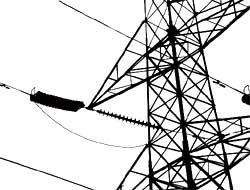We propose, greens dispose...
 TODAY, from all states. The very object of convening this meeting is to work out the national policy in power sector. In the last four months, after I took over the responsibility of the administration at the Centre, I have realised that there is no proper national power policy. In my opinion, if we are suffering from power famine, it is due to the lack of a broad national policy.
TODAY, from all states. The very object of convening this meeting is to work out the national policy in power sector. In the last four months, after I took over the responsibility of the administration at the Centre, I have realised that there is no proper national power policy. In my opinion, if we are suffering from power famine, it is due to the lack of a broad national policy.
Power sector is the core sector. Without tackling the power famine, I do not think the country can grow according to our expectations either in the field of industrial development or agriculture. Every state today is facing a power shortage, whether it is hydel or thermal. If the hydel projects are not going to be filled up with sufficient water, a power problem will naturally occur. The other contributing factors like the shortage of coal or its improper quality or even railway facilities to transport coal are some of the issues which I would be able to understand better from the state governments.
Darkness abounds From Delhi to all other state capitals, I find that this situation is prevailing everywhere. In addition to this, if the Centre or states take any decision, there are forces which try to attribute motives alleging a nexus between the investors and the government. This has resulted in delays in the execution of the projects. The intention of liberalisation was primarily to make use of private investments and to see that this problem is solved. According to official figures, for the next five years we need an investment of about Rs 250,000 crore. The same amount is required for improvements in the transmission and distribution system. Where do we get this amount of five lakh crore of rupees? Unless we evolve a national policy about the tariff, how can anybody come forward to invest? I think almost all of our electricity boards, today, are in the red. More than Rs 16,000 crore is due from the electricity boards, whether from the government undertakings of either Central or state governments or various other Government organisations.
The situation is such that nobody is prepared to take hard decisions which would make them unpopular. We are ready for that. If a chief minister of a state government belonging to a particular party takes a hard decision, the other political parties want to take certain mileage and make it an issue for agitation. I am pained to say this. How long can we play this type of mean politics? Let us collectively take a decision today. One major step that we have taken in the first chief ministers' conference was to identify our priorities. All the chief ministers, irrespective of the political parties they belonged to, collectively took a decision and unanimously passed a resolution that in those seven specific areas they must achieve the goals with a time-bound programme. That is a major decision according to me. Today, I want that such a decision, should be taken in this conference. I am sure and am fully convinced that unless we all collectively shoulder our responsibilities, particularly to work on this power famine, I do not think that the country will progress.
Decentralisation: key to light Today, the government of India is equally anxious to give more powers to the states. We do not want to centralise the power sector at Delhi. Be it the ministry of economic affairs or energy or environment or planning or finance
Related Content
- Order of the National Green Tribunal regarding construction of a sewer line along a 600-metre stretch of the Yelahanka Puttenahalli Lake Bird Conservation Reserve, Bengaluru, Karnataka, 02/05/2025
- Order of the National Green Tribunal regarding maintenance of Macchali talab (water body) in Smriti Van at Vasant Kunj, Delhi, 03/04/2025
- Order of the Delhi High Court regarding STP and CETPs to curb untreated water flowing into river Yamuna, Delhi, 28/01/2025
- Order of the National Green Tribunal regarding dumping of debris into the river Nunia, Asansol, Paschim Burdwan, West Bengal, 02/01/2025
- Joint committee report on pollution of Chandlai lake, Jaipur, Rajasthan, 21/11/2024
- Order of the National Green Tribunal regarding pharmaceutical-induced environmental contamination, 06/05/2024
